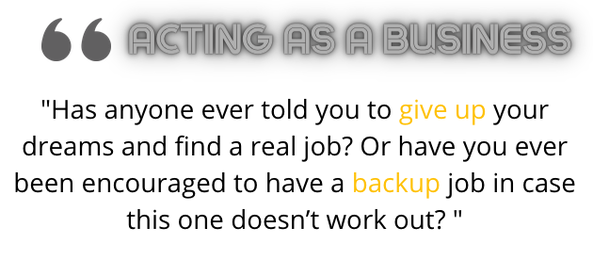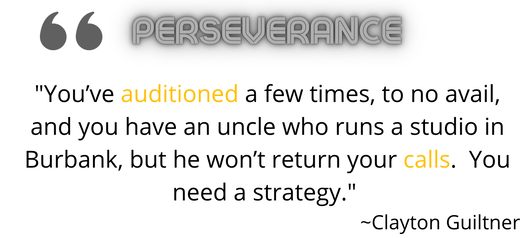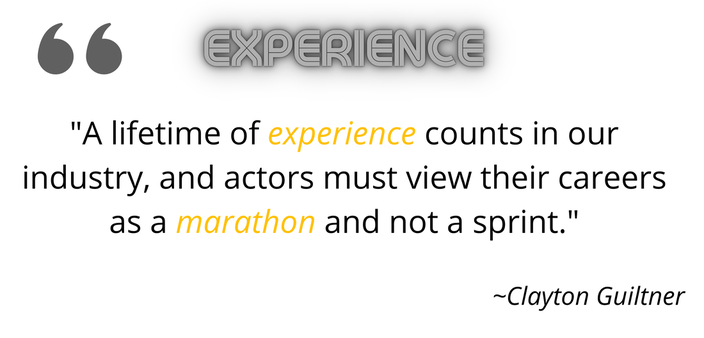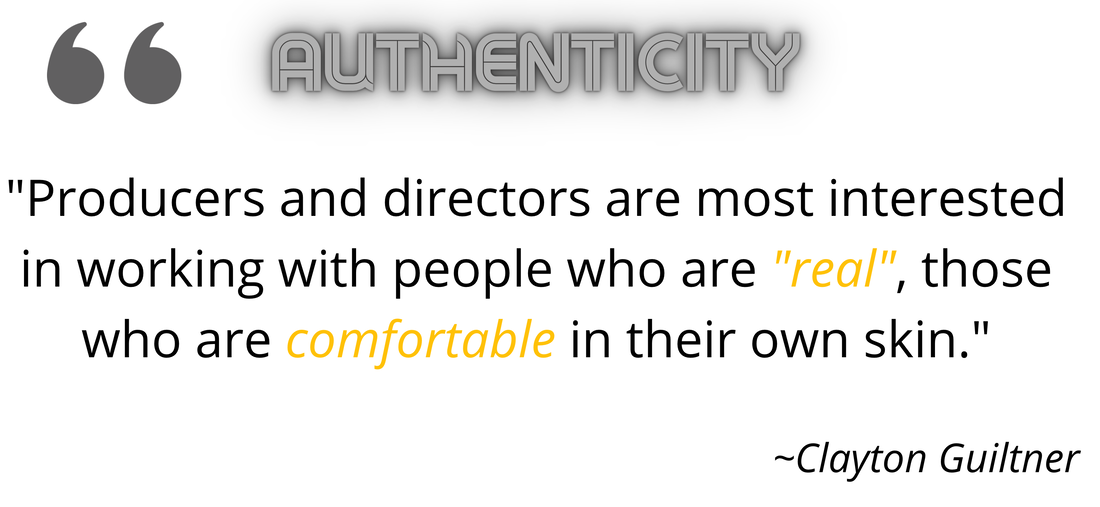Clayton Guiltner, Director
Sing for your Supper.3/15/2021 Without getting too far into the history of entertainers, indulge me for just a moment as I take us back to the days of the minstrel. During the medieval era, minstrels were entertainers who wandered the countryside from town to town to perform for the locals on the streets. I’ve always imagined they had to be very talented musicians and actors to gain the attention of locals in the hopes that they might get a token dropped in the bucket or be given a loaf of bread or even a place to stay for the night. Gypsies may be the closest modern day equivalent of the minstrel, but than again, are gypsies still a thing?
Musicians, actors, and magicians were not highly revered during these medieval days, not famous and in fact often the opposite, infamous. They made their livelihood by performing. Yes, they literally had to sing to earn enough coins to get supper or a place to sleep for the night. It was a difficult life, and many did not see the value they brought to the community. They undoubtedly were looked down upon and encouraged to “find a real job.” Does this sound familiar? Has anyone ever told you to give up your dreams and find a real job? Or have you ever been encouraged to have a backup job in case this one doesn’t work out? One of my most valuable mentors used to use this term “sing for your supper” a lot. In other words, take your talent, your skill, expertise, and yes, your network, and use them to make a living. This proposition is in the United States economic and social environment in 2021. The argument can be made that with the invention of the internet and social media that being an entertainer is perhaps easier now than it was way back when. Here are some thoughts to reflect upon:
In conclusion, we must accept that artists working to fund their business has been around for centuries. We must be okay with the concept of survival jobs as a means to progress in our craft. Some days we will be paid well to act, and other days we will not. For more tips on survival jobs and strategies for establishing a sustainable acting “business,” check out our upcoming class “Auditions and Business.”
1 Comment
How Do I Find An Agent?3/10/2021 How do I find an agent? I get this question frequently from actors with little to no experience, and even some who have been trying to grow their career in New York or L.A. for years. There are many considerations an actor must make when seeking an agent and I can’t cover them all in this article. I can, however, give you a few bullet points to think about as you explore this question.
No Credits Vs. No Experience So you’ve been dreaming of a career in acting but you simply haven’t had any chances to act. You’ve auditioned a few times, to no avail, and you have an uncle who runs a studio in Burbank, but he won’t return your calls. There is a big difference between no acting credits and no experience. You cannot control whether or not you get cast in a role that will land you an IMDb credit. If you could control that, you’d be busy memorizing lines for your next role right now instead of reading this article. But you can control your experience. In other words, what steps are you taking to grow as an actor? Have you taken classes? Workshops? Have you hired an acting coach? Any of these options give you experience in the craft of acting. Don’t think of it so much as a resume credit but as actual tools you have in your tool belt to put on a character, and give amazing acting performances. If you’re not training, you’re not growing. Also, training is not just about acting but also is about the business, etiquette, and branding strategies. Self Submissions In our upcoming workshop, “Hollywood Auditions: Inside Tips” I will discuss the strategy of audition self-submissions. The fact is, even actors with agents should be self-submitting for roles. You should be working hard to land any audition you can: community theatre, unpaid student films gigs, independent shorts, indie music videos, and even musicals or plays! For early career actors, every credit is a valuable credit. We tend to let our pride get in the way of accepting roles early on, thinking that we are so great and so talented that we can only accept high paying roles that will land us on a major network or feature film. But every role we land adds to our experience level, builds our credits, and most importantly. . .grows our network! Networking Okay, you didn’t sign up for a career of meeting random people in the hopes that something with them may work out someday. After all, you may consider yourself a classically trained actor who understands the craft with ease. My point here is, no matter how talented you were when you came out of the womb or how many degrees in performance you have acquired, there is nothing more valuable than building a strong network. And it’s often this network that will put you on the path of meeting your future agent. Finding the Agent Bottom line: how do you find an agent? Do all of the above. And do all of the above a lot. Once you have built some experience in the craft of acting, you have acquired a few credits here and there, and you have started to build your network then you may start the process of looking for an agent. Here’s a list of ideas:
When Will I Be discovered?2/28/2021
I taught a Bunraku Theatre unit in an advanced acting class many years ago. The goal of the topic was to walk actors through the creative process of creating a story from scratch, experience the stage craft of building a life-size puppet, and then performing the story operating the puppet along with a team of three other puppeteers. It was a lesson in play-writing, stagecraft, and collaborative performance all in one. The truth is, the actual art-form of the Japanese Bunraku theatre comes only after puppeteers have devoted their entire career and a lifetime of study to the performance art-form. They begin learning as children, attend school for two years and then follow a 10-year long apprenticeship to learn how to operate just the puppet's leg! Then another 10 to 15 years to learn the arm movements, and eventually they are invited to learn to become the lead puppeteer operating the head of the puppet. Like these Bunraku career artists make their stories look beautiful, seamless, and effortless, you as an actor aim for the same in your performances. And that comes with time and experience.
A lifetime of experience counts in our industry, and actors must view their careers as a marathon and not a sprint. We like “rags to riches” stories where actors hit the jackpot by suddenly being discovered. Famous actors seemingly pop out of nowhere and it looks as though they hit the big time literally overnight. A closer look into their journey usually shows a minimum of a decade long struggle to get cast. Celebrity actors often have years of training, thousands of rejections, and have worked every survival job imaginable to make it as a paid actor. Activity Challenge #1: Make a list of your roles (big or small), people you’ve met, classes or workshops you’ve attended, and auditions you’ve had (include the ones that didn’t get end in a job). As you plot out your journey, use it not to dwell on what you may view as going nowhere, but instead, view it as accomplishment toward your goal! You have been working! With each step in your journey, you have made progress! Activity Challenge #2: Research your favorite celebrity actor. When did they start acting? Did they study acting? Look for interviews or articles where they discuss their audition fails. How long did it take them to land that big role? Have you been working at it a month, a year, two, or maybe three? If you have logged a decade of experiences so far, congratulations, you now have mastered the leg! For more reading about how our experiences feed our artistry, check out my article: “A Lifetime of Experience Counts” on LinkedIn. Silence that voice!2/25/2021 It's funny to imagine that a word like authenticity would be used to describe a profession that revolves around pretend! But there is a reality behind the smoke and mirrors of a Hollywood production that is unmistakable: the pursuit of authenticity. What does that mean? Bottom line: producers and directors are most interested in working with people who are "real", those who are comfortable in their own skin. When you walk into an audition or a meeting you have to be YOU. You have to be comfortable with who YOU are, that includes your physical attributes, your personality quirks, the sound of your laugh, and your overall decorum.
Do you ever tend to get wrapped up in your resume (or lack thereof, or second guess your talent? We all do it it seems. But the KEY to projecting confidence is not allowing that little negative voice on your shoulder to influence you. We have to silence that voice! As a producer and director, I don't want to play games or have to guess what you're really like, I want to know who you are right away! And remember, I am for you, so what do you have to lose? Activity Challenge: How do we learn to be ourselves? There are many paths to this and each of us may approach it differently. But as a starting point, I'd like to suggest you find out more about what makes you tick. Here's an assignment: go to www.16personailites.com. Once there, complete the survey. The web site will assign you a "type." From there read all of the material offered on the site. If you find this to be an accurate description of yourself, use the information to validate your personality. About
We hope these tips help you in your understanding and pursuit of the career of acting. ArchivesCategories |




 RSS Feed
RSS Feed